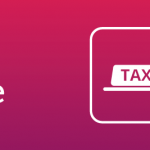Are you looking into income protection? If so, you’re not alone. Brexit continues to bring uncertainties to our lives, along with questions on how it will affect the UK economy as a whole. In fact, Brexit is one of the main reasons so many people are considering this type of coverage, especially after the car and steel industries were hit hard with job losses in earlier this year.
What is Income Protection Insurance?
Income protection is a type of insurance coverage that ensures you’ll have a monthly income if you’re unable to work due to accident, involuntary redundancy or sickness. There are two types of coverage to choose from: short-term or long-term income protection.
Short term protection is generally designed to cover you during a short time period. The average length short term policies pay out is about two years.
On the other hand, long-term income insurance is geared to help people who are not able to work and earn for a longer period of time. These policies will pay out until you are well or until the end of the stipulated policy’s term.
This type of protection can cover up to 70% of your current gross monthly salary. If you need to receive payments, they’re sent directly to your bank account.
Why Do I Need Income Protection Insurance?
Think of it this way—what would happen if you lost your monthly wages all of a sudden? How would you pay the rent, buy groceries, pay the utilities, etc.? With income protection insurance, you’ll have peace of mind knowing that you’ll be able to take care of your financial responsibilities and commitments. This type of coverage is especially crucial if yours is the main income in your family.
Even if you go back to work at reduced capacity, with lower pay, income insurance may still provide support. This way you’ll be able to focus on recovering your health and not worrying about how to manage your financial issues.
Which Type of Coverage Should You Choose?
As you research income protection insurance, you’ll find there is a wide range of coverage available, with the most popular being individual income protection or employer provided income protection.
Individual income insurance: with individual income insurance protection, you take out the policy to protect your income. You can personally purchase the insurance through an independent financial adviser (IFA) or an insurance broker, or sometimes directly from the insurance provider. You can apply for this type of coverage if:
- You work full-time
- You work part-time
- You’re self-employed
Questions to ask yourself to see if this protection is right for you:
- Do you have enough savings to cover your financial responsibilities, including debts or personal loans?
- Do you have dependents? Will your savings be enough to provide for you and your dependents if you’re not able to work?
- Do you have sick pay to use? If so, how long does it pay out?
- If you’re self-employed, how would you cover financial commitments if you weren’t able to work for a time?
You can also apply for individual income protection even if you have a pre-existing medical condition. However, it’s good to note that your monthly premium could be higher, depending on the how serious your conditions is.
The cost of your premium will also depend on the following:
- The type of job you have
- Your age
- The percentage of income you’d like to cover
- Your health, including pre-existing conditions
- When you’d like the policy to end
Employer provided income protection insurance: is purchased by your employer to protect your income if you’re unable to work due to injury or illness. This is sometimes provided by the company as part of the employee benefits package.
Under this type of coverage, employers choose the policy that fits their business needs and their budget. In addition, they choose the length of time the policy runs, whether the company pays for it completely, or if the employee will have to pay for part of the coverage. They’ll also choose which employees receive this type of coverage and how long they have to be off work before the benefits begin.
This type of policy does offer some benefits over individual income protection policies including:
- No medical underwriting, meaning even individuals with pre-existing conditions will be accepted. There are no exclusions related to their health.
- These policies pay your regular income if you can’t work.
- You’ll have access to support from your insurer through employee assistance programmes, along with access to professionals, including physiotherapists and mental health professionals.
- You’ll have a case manager who will assist you through the recovery process, and they’ll help you get back to work as soon as possible.
- Wellbeing is the specific goal, and you’ll have access to preventative support services and tools.
- For specific details, you’ll need to talk with your employer on exactly what benefits are include and what services will be available when and if you need them.
Whichever type of policy you choose, you’ll receive monthly income payments from the insurance if you’re unable to work.
Most policies have a waiting period that is pre-agreed. This is also called the deferment period. The waiting period is the time between when you’re unable to work and the time payment begin.
What about Income Protection for the Self-Employed?
Income protection insurance is also a valuable option for those who are self-employed. Why? Because you face the same financial issues as those who are employed by a company. What will happen if you’re not able to work? Who will take care of the bills and other financial responsibilities while you’re unable to work?
Self-employed income protection works much the same as the other types. When you’re not able to work due to an injury or illness, you’ll receive monthly payments to help pay the bills. Without coverage, you’ll be forced to claim Employment and Support Allowance, which is paid for up to 13 weeks after your claim. These payments are small—you’ll receive only a fraction of your monthly income. However, with self-employed income coverage, you can receive between 50% to 70% of your gross income. This amount varies between insurance providers.
Self-employed income insurance provides long-term monthly income when you’re not able to work due to injury or illness. The amount you receive is based on your share of the pre-tax profits generated by your company.
The length of time you’ll receive a payout depends on your insurance policy details. The average is from 12 months or until retirement.
Premiums for this type of protection may be calculated based on the following:
- Your age
- Type of work you do
- Current health (including if you smoke)
- Level of income
- Deferred period
- Length of benefit term
- Type of benefits chosen
These are some of the main options when it comes to income protection coverage. As you can see, income protection insurance is a great way to make sure you continue receiving an income even when you’re not able to work.
More information advice regarding Income Protection: https://www.moneyadviceservice.org.uk/en/articles/do-you-need-income-protection-insurance


